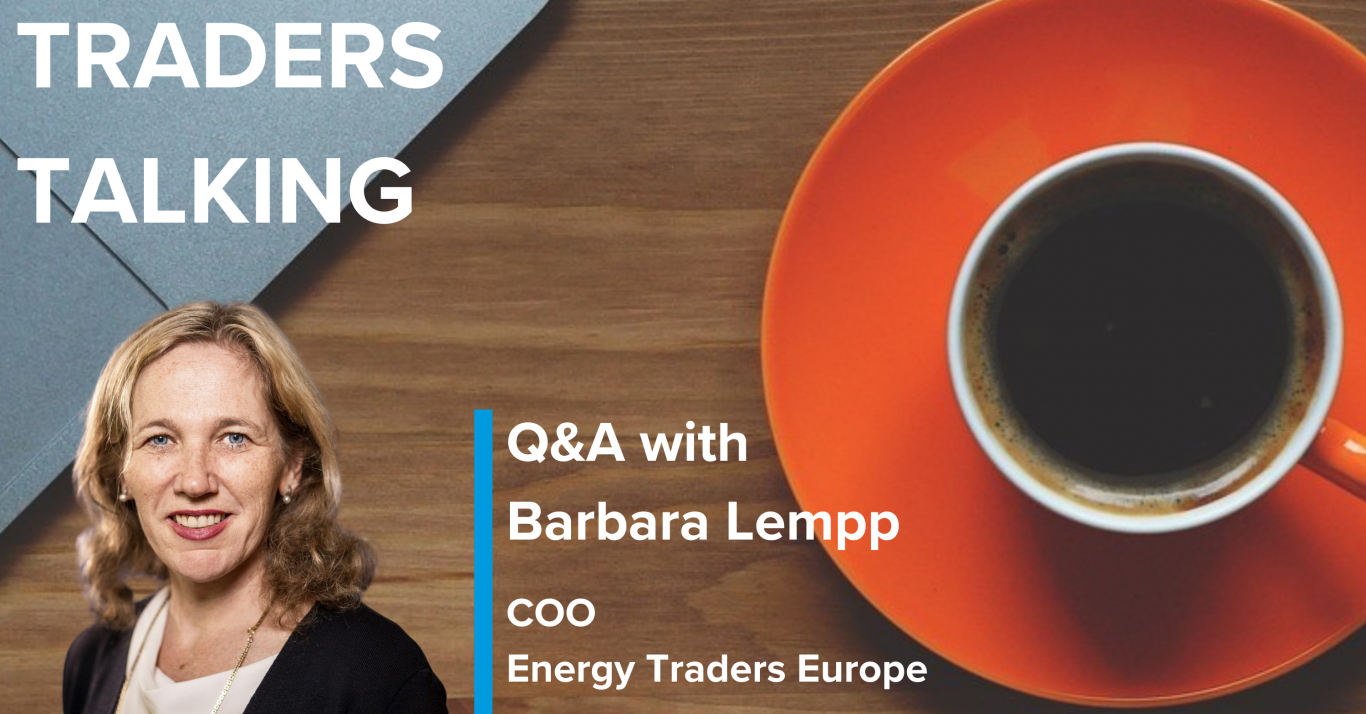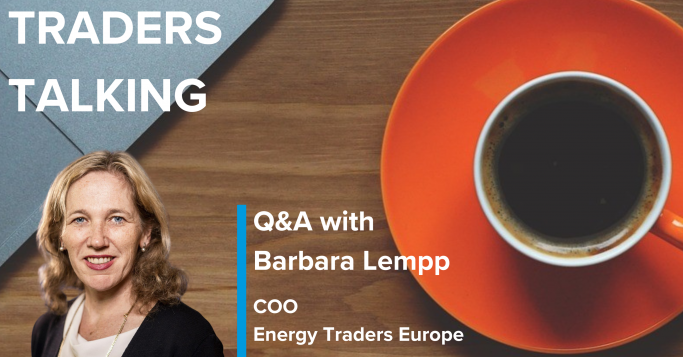Q & A with Barbara Lempp - Energy Traders Europe Board Member
Traders Talking


What aspects of energy trading particularly appeal to you?
Energy trading is purely based on digits and a very sophisticated IT environment. That is how it was established back in the 90s and in terms of modernity, traders were always ahead of the curve. Modernity can sometimes also mean a kind of freakiness. That is valid for energy traders as well who are fond of using vocabulary you would never find in other parts of the energy sector. Being a very political person, it thrilled me from the beginning to translate this nerdy language into one which is digestible for each politician or journalist or ministry official you meet.
What surprised you when you entered energy trading?
It surprised me that unlike other parts of the energy value chain, energy traders seemed to be the youngsters, reacting much quicker and staying agile no matter what happened. The ability to constantly adapt is crucial and means you have to remain alert.
Tell us something about yourself that would surprise most people who know you.
I am left-handed and left-footed (weirdly not left-eyed as my master eye is the right one). When I was at Kindergarten and tried to write my first letters I developed an ability to write from right to left instead of the other way round. In my view, my writing approach was the correct one. I am still able to write from right to left and you would need a mirror to read it.
What role do you envision energy traders playing in driving the transition to a more sustainable energy future?
With the help of the energy market and consequently, energy traders themselves, the energy transition will happen in the most economic and market-based way. Without price signals being picked up by traders, molecular and voltage-based CO2 neutral energy could not be brought to industry and private consumers at the lowest possible costs.
If you could have dinner with one historical figure, who would it be?
Charles Maurice de Talleyrand-Perigord, the French statesman and diplomat who negotiated for France during the French Revolution, the Napoleon wars and in the Vienna Congress. Apparently he was gifted with his negotiation skills – something I admire people for very much.
As a board member, what key responsibilities do you hold to effectively contribute to the association's success?
Energy Traders Europe recently decided to install a COO – the position which I currently hold. I am responsible for the budget, finances, IT and administration, all whilst making sure that we do our best to make the association resilient against future challenges, in the most efficient way.
What is one of your proudest achievements, and what lessons did you learn from it?
In my first year as CEO of Energy Traders Deutschland, I reached out to former EU Competition Commissioner Joaquín Almunia, asking him to speak at our Parliamentary evening in Berlin. The topic was the market-based, technology-neutral expansion of renewable energies in Germany. Almunia had never visited Germany before, nor had he met the former chancellor Angela Merkel or the government in Berlin in person. Out of the blue he accepted my invitation and joined our event on a freezing cold winter day, speaking to 250 guests and dozens of journalists.
What principles and ethical considerations guide your approach to board responsibilities and decision-making?
I see myself as a servant of our member companies. For this reason, I always have the interests of the members in mind when a board decision has to be taken. One of the biggest advantages in our fee structure is the fact that all members from all countries and sizes pay the same fee. That equalizes differences and forces everyone to make concessions. Keeping this in mind helps to take decisions in a more balanced way.
How do you stay abreast of the latest industry trends, developments, and market dynamics to ensure informed decision-making?
As I am very interested in politics, be it national, European or global, I am reading 1-2 newspapers every day, constantly checking online media like Politico, national newspapers and newsletters specialised in energy. Every morning, I have a look at the energy market and its prices to stay informed about market developments. Furthermore, my wide network allows me to get first-hand information on new trends, unclear market situations or the political commonality.
What are some of your favourite hobbies or activities to unwind and relax?
The easiest way to forget about work is focussing on my three kids. Each day with them brings new challenges, but most importantly, a lot of joy. Our family hobby is sailing and we co-own a 90 year old Swedish sailing boat on the Wannsee which transports you into an entirely different world the minute you board it.
How has the evolving energy landscape, including the transition to renewables and geopolitical tensions, impacted the European energy market?
The Ukraine war has shown the resilience of the European energy market. With the indispensable contribution of European energy traders, at no point did the market fail or have to stop as a result of lacking market clearance. This gives hope for the future to accelerate the extension of renewable energies and the ramp-up of alternative markets such as hydrogen. But the energy transition costs social welfare does not come without its costs, and European industry is under more pressure than ever over the past few decades. Europe needs smart decision-makers to find the right balance between spending public money only where the market does not have the power to deliver and keeping bureaucratic burden to a minimum, in order to be competitive with other global players.
What was your first job?
In 2003, I started working as a lawyer in an insolvency law firm in Mannheim which almost left me depressed. Cleaning up the shards which were left after the first start-up IT boom around 2000, which ended with thousands of insolvent companies whose managers fled abroad and left the rest of the now worthless companies at home, was not satisfying work. Thank God my parents visited the European Parliament around that time and talked to an assistant of our constituency MEP Peter Liese – who was also a lawyer. From there I got the idea to apply for a stage. The rest is history.
Can you give us a peek into what’s on your bucket list?
- Sky-diving
- Hiking alone from Bordeaux to Santiago de Compostela on the Camino de Santiago
- Sailing around England and Scotland